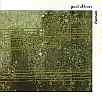How much of your income goes toward food? Imagine if you never had to pay for it again. The amount of money you could save would be substantial. After a while, though, something interesting would happen: fewer culinary choices would be available. "That`s OK," you`d tell yourself, "it`s free." Eventually, items would appear with no assurance to their quality or consistency. Finally, only subsidized items would be on the market with little or no brand choice. "How the hell did this happen?" you`d mutter.
In the world as we know it, every action has an equal and opposite re-action. When products are purchased, the money spent is divided between the parties that bring them to market: a monetary food chain that comprises an industry infrastructure. This is how companies, if managed properly, stay in business and grow year after year. Ideally, with their prosperity come new and better products for consumers. In essence, items purchased become an investment in the future prosperity of a company.
There is no argument that free stuff is good for business. Like cookie samples at a local coffeehouse, a taste of something can entice consumers to purchase products they may not have tried before. But in a coffeehouse consumers can`t reach behind the counter to help themselves to any item at any time, in unlimited quantity. If they did the coffeehouse would quickly be out of business.
Owners must have control over what they sell. If consumers aren`t happy with what`s offered they have the right to go elsewhere, not steal what they want. The same is true for media on the Internet. Music, video, animation and other entertainment are all products that have been produced for consumer enjoyment. The problem is that since the advent of digital media, no real safeguard has existed for content/copyright owners to protect and control the distribution of their goods. So how do you stop people from raiding the digital cookie jar? The proper tools must be accessible for owners to protect their goods.
As an example, a San Diego company called DigMedia, Inc. has developed a Web-based application for content owners called dBoxer, which has the potential to change how digital content is controlled and distributed, on and off the Internet. dBoxer is described in the company`s literature as a "Web-based digital rights management program." What does this mean and how can it change things? Simply, it protects digital media and allows the owner (record labels, publishing companies, artists) to define usage parameters (number of listens, price). Consider a piece of candy that can only be unwrapped by designated people. Get the picture?

Software like this is designed for the 21st century. It`s Web-based, which means it can be accessed from any computer (with Internet access and a browser) anywhere in the world. Companies that purchase a license are given registration and password information. It`s scalable, which means dBoxer can process any amount of media with equal simplicity, from one to infinity. For example, a record label can encode its entire catalog with any number of usage parameters. If it wants to offer music for free, it can. If it wants to charge per listen, it can. The point is that the owner controls how content is accessed.
The ethical arguments regarding digital file sharing will probably never end. And there are compelling cases to be made from various perspectives. Legally, however, the right to sell and distribute content remains the province of its owner. A new breed of DRM software gives them more power.
Paul Abbott has been playing and amplifying acoustic guitars since 1988. He has recorded several CDs (both solo and with bands), composes and performs his own works for solo acoustic guitar, and experiments in computer composition.
